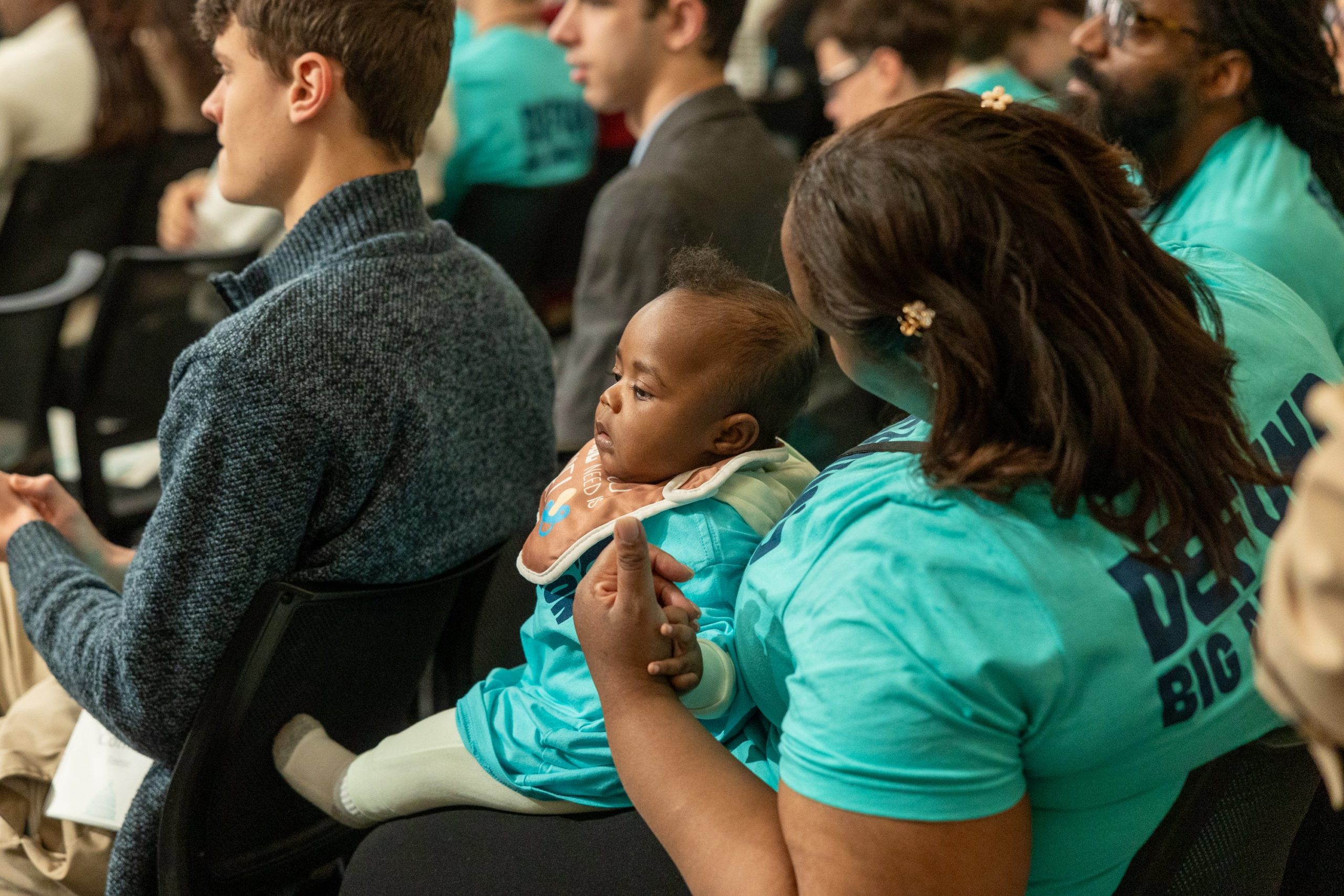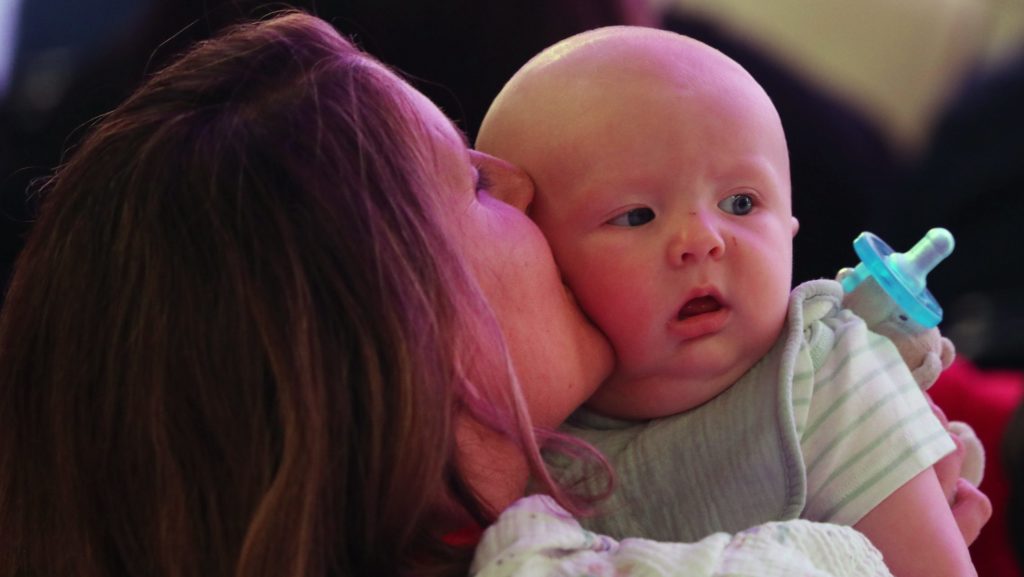Limited access to mental health care, rising substance use disorders and increasing income inequality are three likely reasons that young women and mothers are reporting declining mental health. But another reason for worsening mental health struggles that's widely cited by studies and mental health experts alike is the growing, societal-wide social isolation.
"We expect everybody to be able to handle everything by themselves," said Daniel Roberson, a Catholic mental health counselor based in Arlington, Washington. "Women are more relational ... (so) isolation is always going to affect women more than it's going to affect men, and I think isolation could be the word of the decade."
A March 13 Gallup poll found that from 2020 to 2024, just 15% of women aged 18-29 polled said they have excellent mental health, down 33 points from 2010-2014. A May 27 study from the JAMA Network found that self-reported mental health was found to have significantly declined for mothers of minor children.
The Gallup poll notes that some of this reported decline in mental health is due to a growing awareness of mental issues.
"The COVID-19 pandemic appears to have been a turning point in Americans' perceptions of their mental and physical health, compounding declines already underway," the survey notes. "The shift in how people perceive their mental health could reflect several dynamics: heightened anxiety brought on by the COVID-19 crisis; heightened public and medical attention to mental health during this period; and a lessening of the stigma around admitting mental health challenges."
In his clinical experience, Roberson believes there is both an increased personal awareness of mental health struggles as well as a decline in mental health. Among his clients who are mothers, especially stay-at-home mothers, he sees a tendency to give and give that leads to burnout.
"There's a risk where the woman starts to think that it's her job to pour out everything until she has nothing left," said Roberson, who is also part of the Catholic Psychotherapy Association. He helps clients to see that taking care of themselves ultimately allows them to take better care of their family and friends.
At her practice, The Perinatal & Reproductive Wellness Group, Becky Morrison Gleed works with women and mothers struggling with mental health issues. She echoed the findings of the studies.
"This is matching what I see," said Morrison Gleed, who is based in Falls Church, Virginia. "It's a bit stark (and) sad."
She feels mothers are expected to do more with fewer resources, in addition to other problems including medical birth-related traumas or difficulties with partners, if they have partners.
"This is a new generation where we have more dual-working parents and so gone are the days of the stay-at-home mom who has the village in her cul-de-sac," she said. "The expectations have not necessarily shifted to catch up with demands on mothers in terms of roles, mental load, working responsibilities and childcare."
Morrison Gleed said she encourages people to check in on their mom friends and family members, especially postpartum moms.
"The biggest risk factor that we know is if the person is not sleeping. If they've gone multiple days with no or minimal sleep, that should be considered an emergency," she said.
She also advises against giving unsolicited advice.
"Try to listen to what she's telling you," said Morrison Gleed. "Then she might share a little bit more and before you know it, you have a better idea of what she might need to feel supported and thrive as a mom."

The JAMA Network study noted that the self-reported physical and mental health status was significantly lower among mothers who were U.S. born, single parents, less educated, and those with publicly insured or uninsured children. Countless Catholic ministries reach out to the underserved through food banks, rental assistance and free medical clinics. But there's also special outreach to struggling pregnant women through parish-based ministries such as the Gabriel Project and Walking with Moms in Need.
Kat Talalas, assistant director of pro-life communications for the U.S. Conference of Catholic Bishops, is working to expand Walking with Moms in Needs so that every parish is equipped to serve struggling families. So far, at least 60 U.S. dioceses — approximately one in three — have a Walking with Moms in Need presence. Talalas sees the ministry as answering St. John Paul II's call to "radical solidarity" with mothers.
"We are meant to welcome children into a community and have that community be a secure place to raise a family," she said. "It's really important to increase opportunities for women to know they're not alone, to have people who are willing to help them both practically and emotionally with all the changes that come with motherhood. Community and friendship can be a huge benefit to women's mental health."
In one archdiocese, just advertising the program has made a big difference, said Talalas.
"Women who are struggling with an unplanned pregnancy, maybe they're a single mother — they might think that the church doesn't want to help them because they're a single mother," she said. "By advertising, it helps reconnect women to the church, where they find that God loves them and they have people around them who are going to support them in welcoming new life."
Other parishes and dioceses support flourishing mental health through Catholic Charities' counseling services or through mental health ministries. Numerous parishes and dioceses are part of the International Association of Catholic Mental Health Ministers, including the Diocese of Boise, Idaho, which recently launched a diocesan mental health team. They've held retreats for parish staffers, an outreach event in a community impacted by suicide, and some "Catholic Mental Health 101" sessions.
"Many people suffer from this, sometimes silently," said Jay Wonacott, director of Marriage and Family Life at the Boise Diocese. "There's still a great stigma around mental health issues and I think the purpose of the church is to allay that mental health stigma and help people understand the psychological, the medical and the spiritual dynamics."
Separately, the diocese also has a ministry for women suffering from miscarriage.
"Especially when there's a loss, there can be depression and there can be anxiety," he said.
On an institutional level, Roberson believes the Catholic Church can better serve women's mental health by helping them form and keep healthy marriages, and by making mothers feel welcome in church, even when their babies are crying.
"A lot of the single mothers that I work with and a lot of women with children simply don't feel like they can go to church, simply don't feel like they can engage in society until the children are grown up," he said. "And by then they've formed a habit through their life of staying on the outskirts."
On an individual level, Catholics must commit to accompaniment. Roberson thinks of a friend who is currently accompanying a woman going through a mental health crisis.
"That's painful and messy for him and his family, and it takes a lot of his time," said Roberson.
While it's tempting for his friend to go back to his job and family and leave the struggling woman by herself, he knows that's not right.
"I think we can talk about all the financial or societal supports that we need — and they're good and true — but it begins at the heart," Roberson said. "Do I individually make space for the people around me to talk to me about the things that are hurting them, and do I allow that to actually hurt me?"

